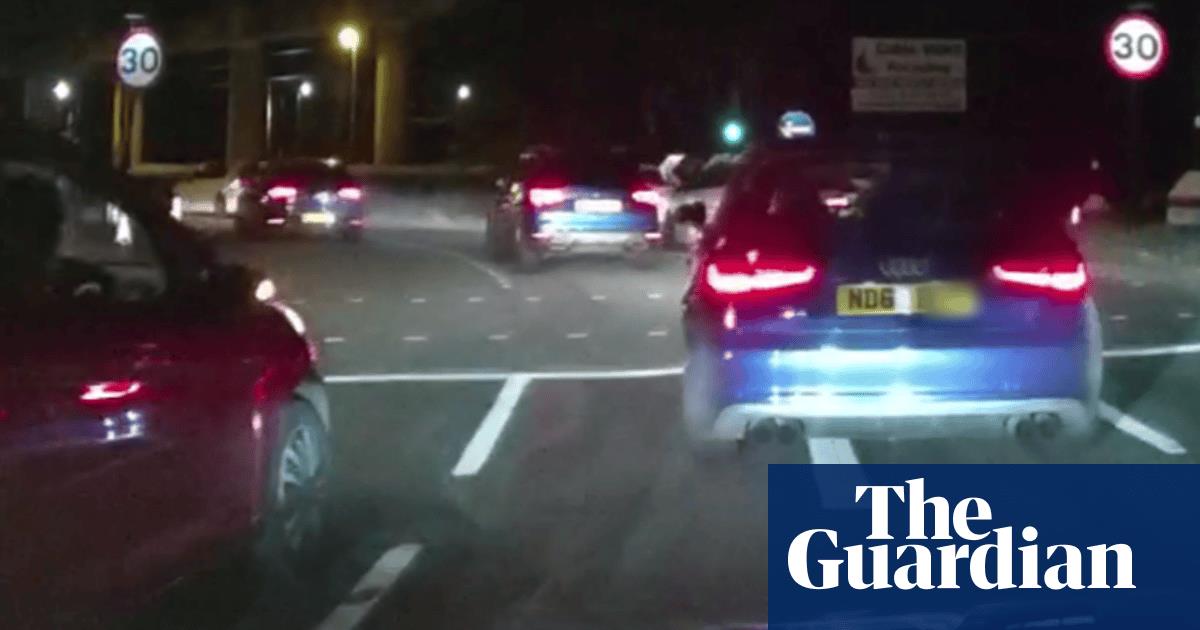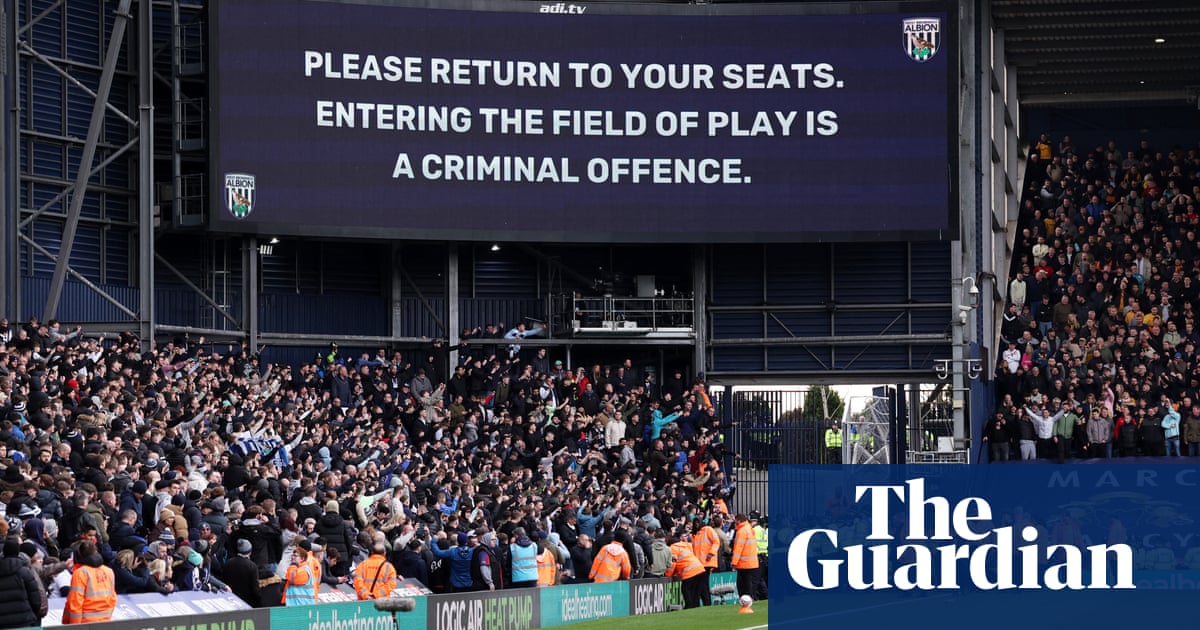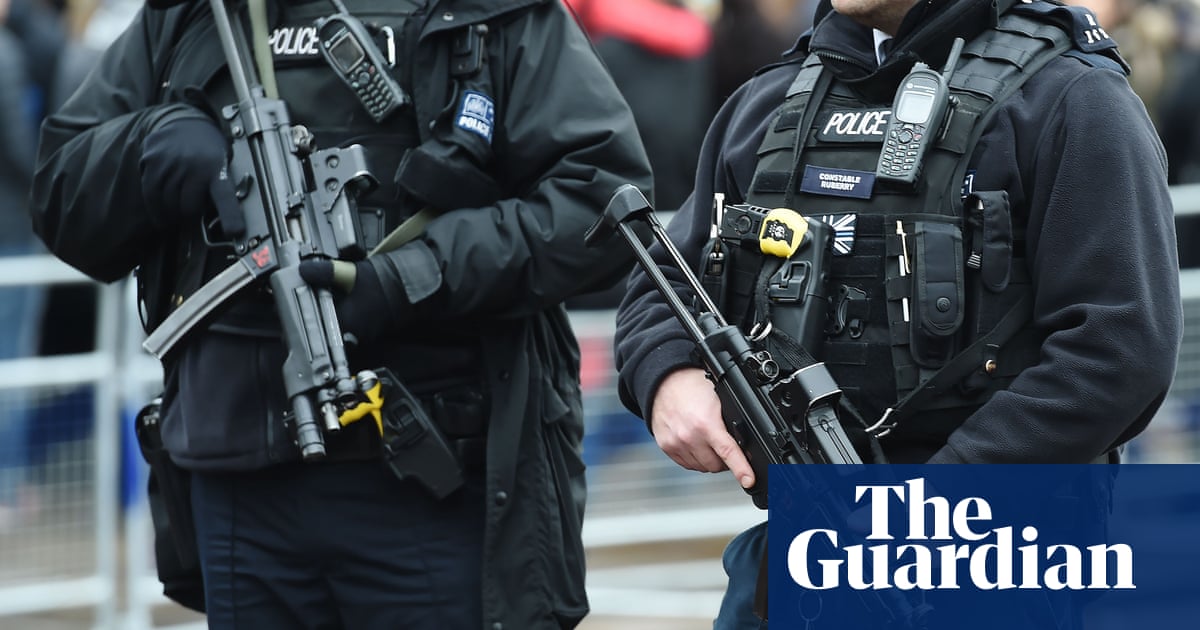
Police in the West Midlands are battling a rise in street racing, with weekly events regularly having more than 200 cars exceeding 100mph on busy roads across the region and drawing hundreds of spectators.
Ch Supt Ian Green, who leads Operation Hercules, set up by the force to tackle the problem, said local residents had been left suicidal and in huge distress by the constant loud noise and dangerous driving.
“When you’re there, they are frightening places to be, because everyone is driving at speed, everyone is driving to the limit,” he said.
“They’ll do 100mph in 30mph zones. But a lot of this is about the people who like to watch it, that kind of Fast & Furious mentality. You can get in excess of 500 spectators coming to watch.”
Green said it was no longer just the stereotypical boy racer taking part in the events, and that women and older professionals were also getting involved.
“It’s everyone from young, new drivers all the way through to professional people who in their normal daily life, you wouldn’t believe they’re out street racing at night,” he said. “These groups have hundreds of thousands of followers online and we’ll go after spectators, organisers, passengers and drivers.”
Mat MacDonald the co-chair of the campaign group Better Streets for Birmingham said drag racing was a “massive problem” in the city despite the best efforts of authorities.
“It has been the cause of multiple deaths and serious injuries on our streets, and is a daily source of irritation, misery and fear for communities across the city,” he said.
“In the daytime people are scared to let their kids play outside and at night some roads are openly used as racetracks keeping people awake for hours on end.”
Martin Price, his fellow co-chair, added: “Police are trying as best as they can but lack the resource to fully clamp down on what can often be large gatherings of people in high-performance cars driving at speed in residential areas.
“Lengthy driving bans for people caught speeding would make a big impact in the short term. Ultimately though, streets should be laid out so it is physically impossible to drive like this.”
West Midlands police have now created the country’s first speed awareness course for street racers, where offenders watch a high-speed crash through a VR headset and hear from someone bereaved by a fatal road collision.
Dozens of early offenders have been sent on the course to try to dissuade them from street racing before they end up with a criminal record. As the issue becomes a growing problem nationally, other police forces are starting to follow suit.
“It is becoming a growing concern across the country, and we’ve presented our work to a number of other forces,” said Green. “People often say we’re just picking on car enthusiasts, but we’re not talking about people who show their car off in a field here, we’re talking about people who do very dangerous stuff, drivers who are going to kill people on the road.”
In 2022, teenagers Ben Corfield, 19, and Liberty Charris, 16, were killed in Oldbury in the West Midlands when a car ploughed into a 200-strong crowd who had gathered to watch street racing, also known as car cruising. A 55-year-old man is due in court later this month, charged with two counts of causing death by dangerous driving.
Green said the force suspected many more people had been killed or seriously injured as a result of organised events, but it was often difficult to prove a street racing event took place.
“We’ve had events recently where street racers have lost their lives. But people aren’t rushing to tell us that it was a street race – we just turn up to the aftermath of a horrific accident. Sometimes we either know the car registration or know the victim, and work it out that way,” he said.
Last week, an Audi driver was arrested for allegedly travelling at speeds in excess of 100mph on a dual carriageway while racing with other cars on a Saturday night, while earlier in January footage went viral on social media of 30 to 40 cars travelling dangerously fast on the A47, a key route into Birmingham city centre.
In recent years, the force has relied on high court injunctions, secured by local councils in the region, which prohibit gatherings of two or more people for the purpose of motor racing, stunts or dangerous driving, to help officers clamp down on it.
A fresh high court bid for an injunction, launched by West Midlands police and four councils in the region, is being heard later this month.
Under criminal laws against offences such as dangerous driving, police have to witness or see evidence of the offence taking place, whereas the injunctions – which can also include spectators and organisers – allow them to intervene before offences are committed.
“While it feels like a sledgehammer to crack a nut, it actually allows us to enforce it before they’ve committed criminal offences of dangerous driving, before they put people at risk,” said Green.
Penalties include driving bans, fines of up to £5,000 and people having their cars seized and crushed, as well as up to two years in prison.
Green said: “I’m at the point now where I’d rather be seen as being over the top, or be accused of targeting car enthusiasts, than have someone die.”












